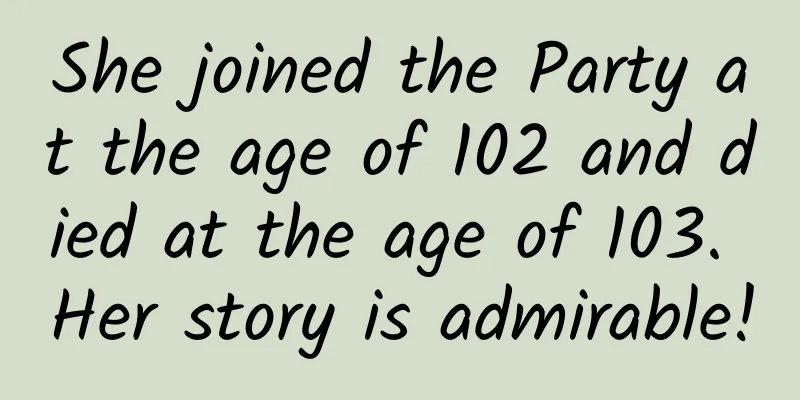Brilliant loner: Death of physics great Peter Higgs

|
According to the University of Edinburgh, on April 8 local time, Peter Higgs, the 2013 Nobel Prize winner in Physics and British theoretical physicist, passed away peacefully at home due to illness at the age of 94. Higgs' most well-known contribution was the proposal of the Higgs mechanism named after him in 1964, which predicted the existence of the Higgs boson and revealed the origin of the mass of all elementary particles, including the W boson. Peter Mathieson, president of the University of Edinburgh, wrote in his obituary: "Peter Higgs was an extraordinary man - a gifted scientist whose vision and imagination enriched our understanding of the world around us. His groundbreaking work has inspired thousands of scientists, and his contributions will continue to inspire generations to come." Compiled by Zhou Shuyi Regardless of his own opinion, Higgs's name became widely known to the public starting with the Nobel Prize. Since he won the Nobel Prize, the following anecdote has been passed on and talked about with relish: One weekend in 1964, Higgs, wandering in the mountains and valleys of the Cairngorms, suddenly had a flash of inspiration and realized the key to the theory. He never looked out of the garden or went downstairs, obsessed with particle physics research; until his eldest son was born, he was still staying in a library several miles away. Higgs was a naive man who lived far away from modern life. He never watched TV and didn’t own a mobile phone. He didn’t get his first computer until his 80th birthday. On the day the Nobel Prize was announced, he didn’t anxiously wait by the phone, but strolled on the street. When he ran into his old neighbors and received congratulations, his first reaction was also confusion and confusion: "What prize?" The above narrative satisfies all our imaginations of physicists. The only problem is that it is a mixture of truth and falsehood. In an interview in 2013, Higgs told reporters that he was confused by the rumor that he got inspiration while walking in the mountains, and he was not surprised by the Nobel Prize. Facing the congratulations from his old neighbors, Higgs, who had just returned from dinner in Leith, already knew everything - "When I said 'what prize?', I was really just joking." Higgs is a solitary person. In fact, he had planned to drive to the West Highlands that day to avoid the boiling crowds. However, because the car had not been driven for six months, the battery was exhausted and could not start. "So I gave up the plan. Of course, I didn't tell anyone about it." There is also some truth to the rumors. Higgs does live a "low-tech" life. He lives in a small apartment, has no mobile phone, no TV, and no Internet. He received a mobile phone from his son, but never made a call - no one knows the number except his family. "I hate being disturbed like this. Why can people disturb me like this?" Because they like to keep in touch? "But I don't want to be in touch. It's an infringement on my lifestyle, and I'm certainly not obliged to accept it in principle." Higgs also doesn't have a TV at home, but this is not because he lacks interest in the outside world. "I don't think of television as the outside world," Higgs once said bluntly, "I think it's an artifact." Someone once showed Higgs "The Big Bang Theory", but he was "not impressed". As a professor, Higgs has an email address, but he never sends emails or even browses the web. In the early days, his secretary would print out the emails he received, and he would reply one by one in paper letters; later, the mailbox was handed over to a colleague who knew that most of the emails did not need to alert Higgs. Higgs liked to be alone, but he was not oblivious to the world outside. In his rich and restrained life, there was also a lot of splendor. Higgs was born on May 29, 1929 in Newcastle upon Tyne, England. In 1941, to avoid the German bombing, Higgs moved his family to Bristol. When he was studying at the local Coan Grammar School, the world was shrouded in the shadow of nuclear weapons, and he almost gave up his physics major because of this. "This is obviously something I don't want to get involved in." Higgs was once actively involved in the British anti-nuclear movement organization, the Nuclear Disarmament Campaign (CND), but CND later became radical and even began to oppose the construction of nuclear power plants. Higgs was fed up with those "guys who couldn't even tell the difference between reactors and nuclear bombs" and chose to quit the organization. "I thought they were just misled and confused the two." In 1950, Higgs graduated from the Department of Physics at King's College London. He originally planned to pursue a doctorate in particle physics, but his supervisor discouraged him, saying, "The current state of particle physics theory is terrible. You will not achieve anything by studying this theory, let alone win a Nobel Prize." So Higgs chose molecular physics. During the CND activities, Higgs met his future wife, an American linguist. He did miss the birth of his eldest son, but in fact, it was only because his wife went to Illinois, USA to visit her parents and gave birth a month early. In 1960, Higgs returned to the University of Edinburgh as a lecturer. His colleagues thought he was "a bit eccentric and perhaps a bit cranky". Higgs had a strained relationship with his superiors and had a disagreement with the president on how to deal with student protests. "I think he didn't understand the reasons for the student protests at all and condemned the student leaders without any reason. Some academics were quite critical of his handling of the situation, and I was one of them." He also clashed with the president over the school's equity distribution in a South African company. Rumor has it that Higgs's delay in getting a tenured position was a punishment for his open challenge to the president's authority. For more than 20 years, Higgs didn't even speak to the president. He was sure that if there hadn't been rumors of a Nobel Prize nomination in 1980, he would have been kicked out long ago. Subsequent exchanges showed that the dean of the college thought: "Well, he might win the Nobel Prize. Even if not, we can always kick him out." After 1970, his wife filed for divorce, and Higgs' life fell into a trough. He remained depressed for many years. The shadows did not only come from his family. Due to his lack of foundation in particle physics, Higgs found it difficult to keep up with the progress in the field. Until his retirement in 1996, he had been outside the various changes in the academic world. He once told reporters, "Today, no academic position will want me. It's as simple as that. I feel that my work efficiency is not high enough." As a "low-productivity" scholar, Higgs's published papers can be counted on two hands, which is obviously far from the current pace of publication. "When I was doing research evaluation work in the department, I embarrassed them. The whole department would send a group message: 'Please list your recent papers.' Then I replied: 'None.'" However, Higgs himself did not feel embarrassed. He added mischievously that because there were too few papers, some researchers mistakenly thought that Higgs's website only listed part of his work and sent him an email asking for a complete list. "I was left behind in all technical details and never caught up. So, I felt that I was not up to the task." "That's not the way I do things anymore. It's hard to imagine that in this environment I would have the presence of mind to do something the same way I did in 1964." The year 1964 that Higgs mentioned was when he made his groundbreaking achievements. On July 24 of that year, he submitted an article entitled "Symmetry Breaking, Massless Particles and Gauge Fields" to Physics Letters, which was quickly accepted and published. A week later, he submitted a second article to Physics Letters, but it was rejected. In the subsequent revisions, Higgs emphasized the theoretical prediction given by the Higgs mechanism - the Higgs boson, and submitted the article to Physical Review Letters. In the Higgs mechanism, Higgs introduced a new matter field (Higgs field), which has a non-zero vacuum expectation value after the spontaneous symmetry breaking, allowing elementary particles to gain mass by interacting with it. In 1993, the British Minister of Science solicited the best popular explanation of the Higgs field and the Higgs particle, and the reward was a bottle of champagne. Professor David Miller of University College London finally won the first prize. Miller compared the process of particles gaining mass to a cocktail party, where ordinary people are ignored and can move around freely, while big names will be surrounded by people and have difficulty walking through the venue. The Higgs mechanism is similar: the stronger the interaction with the Higgs field, the greater the mass of the particle. Particle physicist Martinus Veltman is critical of this kind of popular science explanation. He believes that physical knowledge since relativity and quantum mechanics cannot be understood by imagination and intuition alone, but must rely on mathematical tools. Higgs himself also opposes explanations such as comparing the Higgs field to viscous syrup, because he thinks this will lead to misunderstandings. In the public media, the Higgs boson is more widely known by its nickname, "God Particle", which comes from the popular science book The God Particle by physicist Leon Lederman. Because physicists have invested a lot of resources but have not found any trace of it, Lederman originally wanted to call it "Goddamn Particle", but later changed it to the current God Particle under pressure from the publisher. Higgs didn't like this nickname. This was not out of consideration for maintaining religious feelings, on the contrary, he was an atheist. Someone wrote to him, claiming that the Bible, the Koran or Buddhist scriptures predicted the existence of the "God particle", which made Higgs regret this nickname even more. He criticized bluntly: "I am not a believer. Some guys are confused between science and theology. They claim that the CERN experiment proves the existence of God. The Spanish Church is responsible for this misleading, and it has made the confused people who are already confused even more confused. Do those who sincerely believe that God created the world in seven days really have good brains?" Although Higgs was modest and reserved in the media, he could sometimes show a sharp side, as shown above. When reporters asked him what fiction he had read recently, he would joke: "Do you mean other people's papers?" Higgs was also upset about the rejection of his paper by Physics Letters in 1964: "I couldn't understand why they accepted a paper about a possible way to get around Goldstone's theorem, but rejected a paper explaining how to do it. So I realized that it would not be wise to send the revised paper to Physics Letters at CERN. The people at CERN don't understand such things." Time changes many things, including CERN. On July 4, 2012, two CERN experimental team spokespersons reported the latest experimental results of the Large Hadron Collider (LHC) in the CERN main auditorium, confirming that the Higgs boson is likely to exist. At that time, Higgs was 83 years old, and 48 years had passed since his prediction in 1964. In the heated atmosphere of the meeting, the octogenarian took off his glasses and wiped away his tears silently. He later explained that he was overwhelmed with emotion, "mainly because the wait was over and I was relieved." Source: CERN Many stars burn alone and go out, and it is long before their light reaches our eyes. Higgs was lucky. He waited until the day when his theory was verified. On October 8, 2013, Higgs and François Englert shared the Nobel Prize in Physics that year. In his acceptance speech, Higgs chose 1960 as the opening of his story: That year, all Scottish universities jointly organized the first physics summer school. Higgs, who had just arrived at the University of Edinburgh, was invited to assist in the organization of the conference and was responsible for the supply of red wine for dinner. Higgs remembered that there were four young students in the summer school who discussed theoretical physics in a basement of the school until late at night every day. They rarely got up early the next day to listen to the first academic lecture. These four young people were: N. Cabibbo, SL Glashow, DW Robinson and MJG Veltman. Higgs did not participate in their discussion because he had to keep the wine. Many years later, Cabibbo told Higgs that it was the wine that the four stole after dinner that served as a catalyst for the late-night discussion. Cabibbo later became the C in the CKM matrix; Glashuv established the electroweak unification theory, Robinson collaborated with others to give an upper bound on the speed of information propagation in non-relativistic many-body systems, and Veltman, together with his students, elucidated the quantum structure of the electroweak interaction. In their late-night conversations, the only thing that happened between Higgs and the foursome was a bottle of red wine. But this seemed to be a foreshadowing: their future life paths would be intertwined, like bright, massive stars in the cold universe, responding to each other with gravity across the darkness. In this sense, Higgs is not alone. Primary Sources [1] https://journals.aps.org/rmp/pdf/10.1103/RevModPhys.86.851 [2] https://www.theguardian.com/science/2013/dec/06/peter-higgs-interview-underlying-incompetence [3] https://www.theguardian.com/science/2024/apr/09/peter-higgs-physicist-who-discovered-higgs-boson-dies-aged-94 [4] https://mp.weixin.qq.com/s/mnNrjaFjGzWuzRPkRPoVfA This article is supported by the Science Popularization China Starry Sky Project Produced by: China Association for Science and Technology Department of Science Popularization Producer: China Science and Technology Press Co., Ltd., Beijing Zhongke Xinghe Culture Media Co., Ltd. Special Tips 1. Go to the "Featured Column" at the bottom of the menu of the "Fanpu" WeChat public account to read a series of popular science articles on different topics. 2. Fanpu provides a function to search articles by month. Follow the official account and reply with the four-digit year + month, such as "1903", to get the article index for March 2019, and so on. Copyright statement: Personal forwarding is welcome. Any form of media or organization is not allowed to reprint or excerpt without authorization. For reprint authorization, please contact the backstage of the "Fanpu" WeChat public account. |
<<: These 10 little things are not selfish even if you do them!
>>: What you must see when you go to Chunshan: mountains, peaks, ridges...what are the differences?
Recommend
What is the origin of the Spring Festival and the Chinese New Year? What would the "Year" be like on other planets?
It’s Chinese New Year! The lucky rat has left, an...
The latest study shows that drinking milk increases the risk of cancer? Is it still okay to drink milk?
Needless to say, everyone knows the benefits of d...
How to improve the conversion effect of landing pages?
The advertising landing page carries an extremely...
How to create a short video with a mobile phone?
How to make a card-point video with a mobile phon...
Nearly 100 executives changed in half a year. When will the intensive personnel adjustments in the automotive industry end?
In recent years, as the scale of China's auto...
Driven by money, is Apple's App Store also going to use "pay-for-ranking"?
When it comes to paid search, the first company t...
58 Marketing Models That Strategists Must Know in 2022
Model in hand, ideas in mind The model is an effe...
How much does it cost to be an agent for a chemical mini program in Anshan?
What is the price of Anshan Chemical Mini Program...
How much does it cost to make a fruit and vegetable app? How much does it cost to make a small program?
How much does it cost to make a fruit and vegetab...
Nanchang’s severe convective weather has become a hot topic. Is such severe weather normal in spring?
Recently, severe convective weather has occurred ...
Cong Feicong: 18 lessons to improve your sense of security and become an intimate partner
We reject boring teaching methods and use a humor...
Porsche's alliance with SAIC may help resolve the crisis
According to the latest information from the Secu...
Spending tens of thousands of dollars to bring an observation of fan circle marketing activities
With the continued popularity of many "star-...
I went to Kunming to drink tea and make an appointment at the authentic tea tasting place.
I went to Kunming to drink tea at a high-end auth...
Some methods and techniques for choosing 400 telephone service
No matter what we do, if we find certain methods ...









